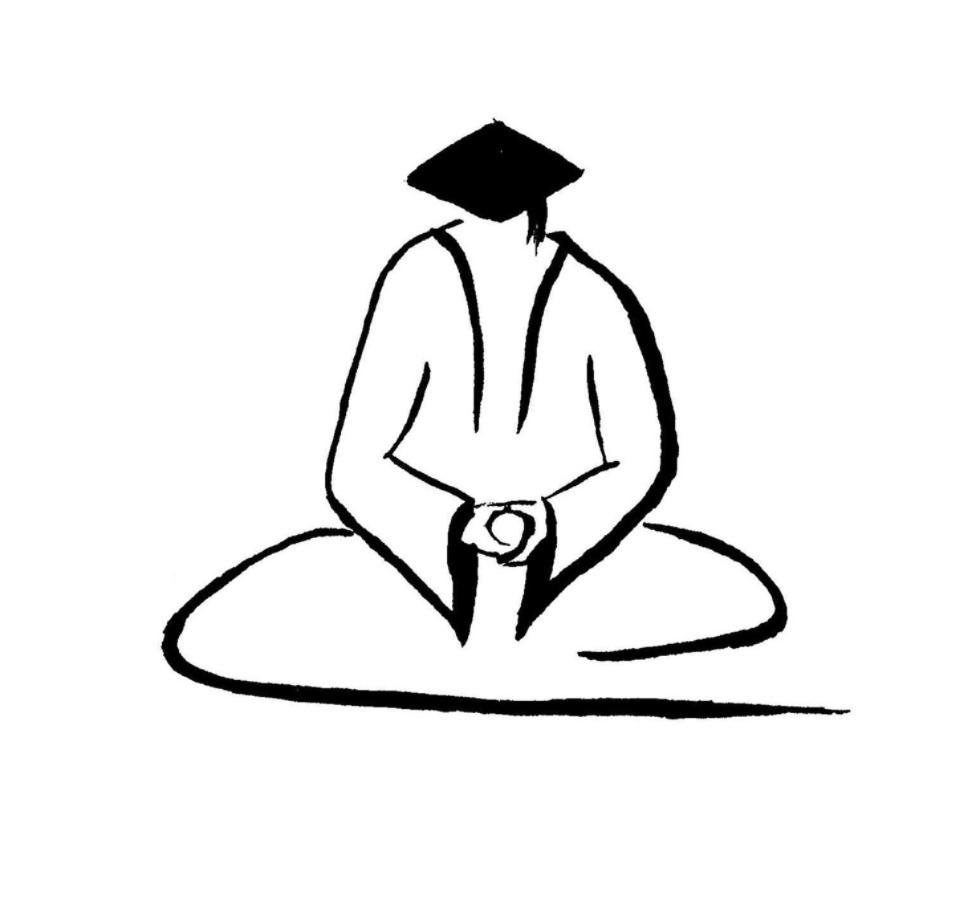|
|
|

ZEN
and the Art of Anything
Third Edition
By Hal W. French
Illustrations by Marianne Rankin
Copyright ©
1999, 2001, 2009 by Hal W. French, Illustrations Copyright © 1999, 2001,
2009 by Marianne Rankin
All rights reserved.
170 pages (includes 16 illustrations and bibliography) ISBN 0963923188,
Softcover, $14.95
“If
shelf and cerebral space allowed for only one book on personal
spirituality, self-knowledge, or improvement, it could easily be Dr. Hal
French’s Zen and
the Art of Anything.”
—The
Star Reporter, Columbia, S.C.
|
Click here
for
Table of Contents
Click here
to return to
book description
Home
|
|
From
Chapter 8: Thriving and Surviving
We each...face
a common, leveling challenge: How to
survive your own death? Can you? This is the ultimate koan
which each of us must penetrate. Once more, many persons are tutored by
hope of personal survival in some realm where all wrongs shall be righted,
all suffering healed. This self that I know here shall stay intact to
inherit rewards such as “Eye hath not seen, neither ear heard.” It is
wonderfully compelling, perhaps most of all to those who have suffered the
most.
There’s really no quarrel with this;
compassion, loving-kindness, dictate a profound feeling for what meets the
needs of people in need, an equally profound respect for our varied
survival strategies. No dogma here. But the voicing, perhaps, of an
alternate model which Buddhism in general and Zen specifically may
suggest. Like the concept of sunyata
or the formula, Nirvana=Samsara,
it conveys a “goal-less goal,” not one of ego-fulfillment but of
ego-transcendence.
The Buddha’s silence on the subject of an
afterlife is compelling: “These are questions which do not lead to
edification. Work on reducing suffering.” There are immediate tasks that
compel our attention, here and now. The other concerns indicate my
attachment, still, to personal craving, even to the extent that I am
obsessed with my need to live forever.
But consider: why does my sausage-encased ego
insist that it must live in perpetuity in this particular package if life
itself is to hold any meaning? Does that seem egocentric, presumptuous,
and even arrogant? When Jesus spoke of finding your life by losing it, is
this part of what he meant? Or as Shunryu Suzuki observed: “To live in
the realm of Buddha nature means to die as a small being, moment after
moment.”
Use the wave analogy again. By some incredible
miracle, the vast ocean of time has borne me up to its crest for this
miniscule moment. I look around, revel in all that I see, feel the spray
in my face, elated by the majesty, the enormity of creation, grateful
beyond belief to be alive. And then, all my days distilled into this one
rising instant of supernal awareness, all my life breaths compressed into
one full-swelling of my lungs, I exhale, in the most complete letting go
that I have ever known, and sink, in certain confidence and trust, into
the depths. The ocean of time and space, which has borne me up, will
receive me now unto Itself. All the “special” qualities, the fictional
uniqueness of my separate selfhood, are now dissolved. It is my truest
homecoming. I survive, then, in the larger sense, precisely as I yield my
need to survive, I thrive, ultimately, as I overcome my striving.
The Zen master Ryoken conveyed in his death poem
this image:
Sixty-six
times have these eyes beheld
the changing scene of autumn.
I have said enough about moonlight,
Ask no more.
Only listen to the voice of pines
and cedars when
no wind stirs.
It is enough.
www.praxisontheweb.com
Praxis International, Inc.
1343 Green Hill Avenue
West Chester PA 19380-3959
Tel (610) 524-0304 Fax
(610) 436-4836
Email: info@praxisontheweb.com
Copyright 2009 by Praxis
International, Inc.
All rights reserved
Revised: August 04, 2009 |
